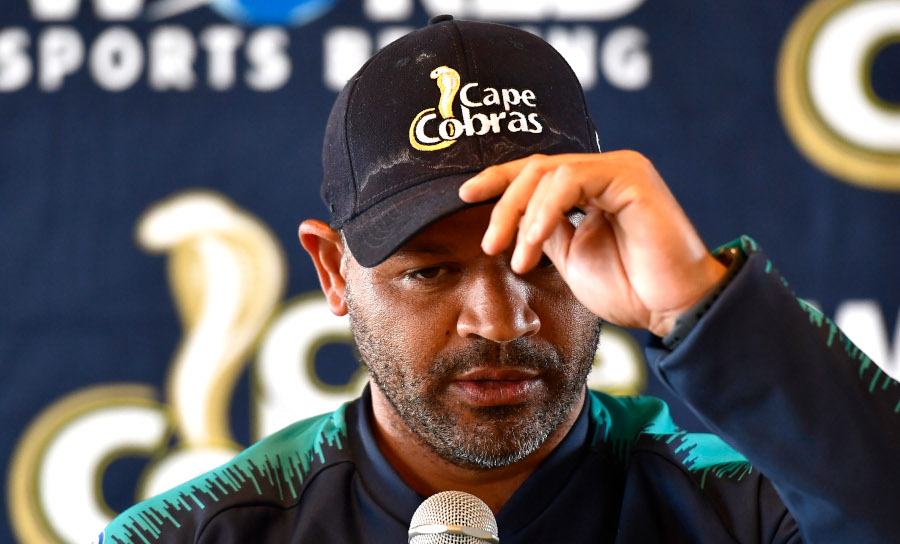Former Proteas batsman and current Western Province head coach Ashwell Prince told the Social Justice and Nation Building hearings that South African cricket needs to relook the way it selects teams and its strict transformation targets.
Prince spoke at length on Monday covering transformation and his experiences of racism in South African cricket.
Prince said Cricket South Africa (CSA) must accept an international standard for players and coaches to adhere to if the Proteas are to get back to the top of international cricket.
“I want to appeal to [CSA], we have got to find ways to select better cricket teams. From junior age groups, right to the top.”
As it stands, CSA’s current specifications regarding the racial makeup of a team, require that three black African players are selected. Two years ago, Prince was in hot water when he selected just two Black African players in a Cape Cobras side. The caveat is that seven players of colour were selected but only two were black African. Prince was issued a warning by CSA and explained why this rigid framework is problematic for him.
“In cricket in this country, are we really going to have an environment where my son’s friends, who are 12, 13, 14 are not going to get a game of cricket because they are white, or coloured or Indian? Is that the future of our cricket?
“Cricket SA might have a picture in their mind of a team that has so many white players, so many black players, then ‘we feel we have the perfect transformation mix’. The problem with that is if you continue to pick players who are performing to a lower level than other players but those other players cannot get in the team because they are not the right colour, you are going to forever have a problem.”
Having coached the Cape Cobras for a number of years, Prince also spoke about the policies’ effect on black players and the problems it created within teams.
“The policymakers that sit in offices, in high positions, I don’t think they appreciate the amount of abuse, mental and verbal abuse, that players face, from their own teammates or the opposition – even on the international stage.
“Every time a black player, coloured or Indian is selected, it’s because he’s a quota, you don’t understand what that player has to deal with. You don’t want a player to suffer that. I had to deal with it from my own teammates and players from around the world.”






